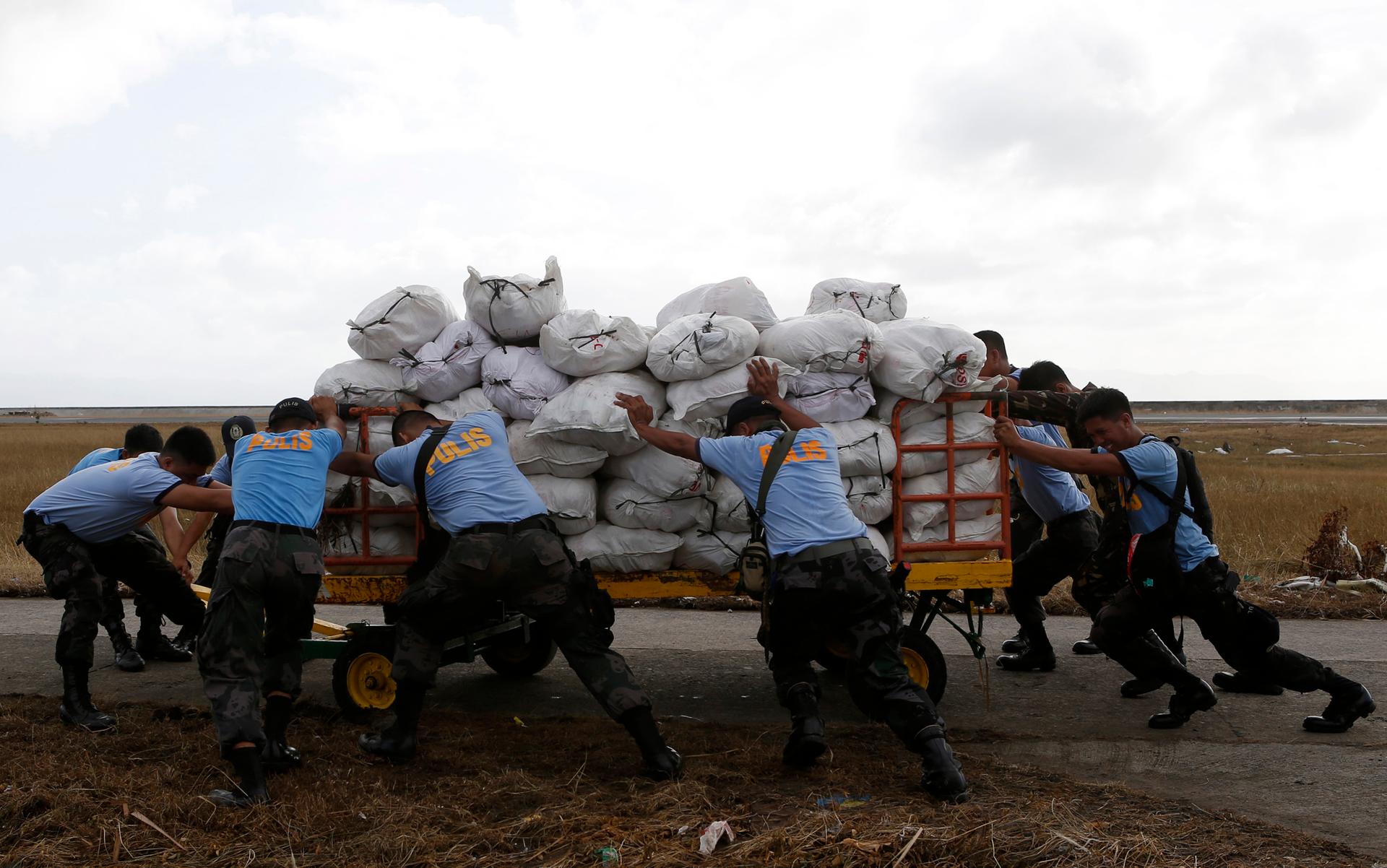Read these 3 tips before you offer help to the victims of Typhoon Haiyan
Relief supplies at Tacloban military base for the victims of typhoon Haiyan.
Typhoon Haiyan has led to an enormous loss of life in the Philippines. The search for survivors continues, and getting medical care to the wounded as soon as possible will be key.
As international relief agencies begin to coordinate the humanitarian response, it is important to remember what we’ve learned from past natural disasters and figure out how we can most effectively help those in need.
1. Consider cash
Want to donate to help survivors of Typhoon Haiyan? Consider giving cash rather than material goods. Cash donations provide charities with flexibility while they respond to a chaotic and fluid situation.
Perceived needs are constantly changing, and since the Philippines is so far from the United States, US-based charities may decide to use your cash donation to purchase goods inside the Philippines.
This approach has many benefits. Buying humanitarian relief directly from the region ensures that the goods purchased are appropriate for local populations. Buying locally also brings a much-needed cash infusion to local purveyors, which is an important part of any post-disaster recovery.
2. Think before you go
As we see the images of destruction emerging from the Philippines, some may be inclined to hop on a plane and offer their help in the relief effort. Before you go, find out what specialized skills are actually needed.
Many locals who survived the storm are already offering their hands to help, and international volunteers without specialized skills have actually been known to hamper relief efforts.
In the wake of the 2004 Indian Ocean tsunami, World Vision, a Christian relief and development organization, said, “Volunteers without [specialized] skills can do more harm than good, and siphon off critical logistics and translations services.”
However, if you have certain specialized skills, you may be able to put them to great use in the Philippines.
Government spokesman Manuel Roxas has said his country needs technical assistance. “Particularly those capable of extending assistance in restoration of communication lines and power and water supply, clearing of debris, and medical assistance.”
But even if you have these skills, make sure you will be able to access the affected areas. No volunteer wants to get stuck at an airport for a week waiting for roads to open up or for connecting flights to begin operating.
3. Consider a long-term stay
Highly skilled volunteers who deploy to crisis zones rarely stay for long. After all, they have jobs and families to get back to. That is understandable, but it does affect the quality of care delivered to vulnerable communities.
When I investigated the work performed by medical volunteers in post-quake Haiti, I discovered that many made no plans for follow-up care for patients. As a result, many patients were left in pain and only partially treated.
Before you go, try to figure out ways to ensure that there will be some measure of continuity of care after you come home. And be sure to leave an adequate paper trail, so that those volunteers who come after you know exactly what was done and what the outcomes were.
The article you just read is free because dedicated readers and listeners like you chose to support our nonprofit newsroom. Our team works tirelessly to ensure you hear the latest in international, human-centered reporting every weekday. But our work would not be possible without you. We need your help.
Make a gift today to help us reach our $25,000 goal and keep The World going strong. Every gift will get us one step closer.
